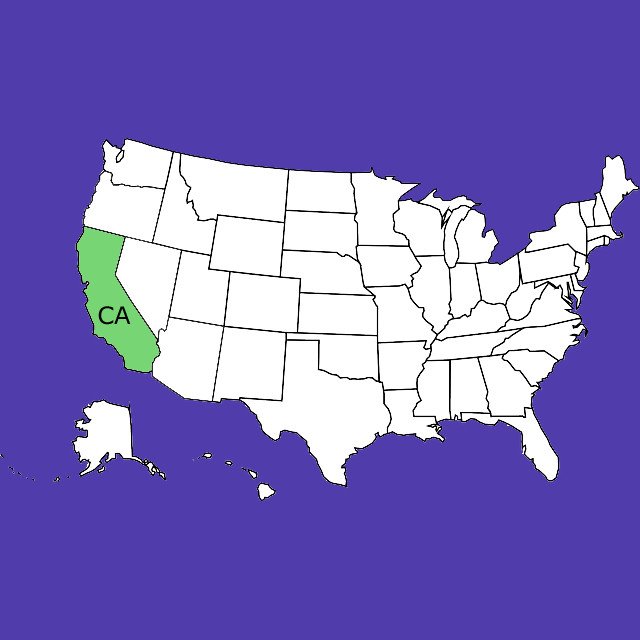Why is California’s cannabis industry in a state of chaos 2+ years after adult-use sales of cannabis were legalized? Why did California fail so badly in transforming a stable, lightly regulated medical cannabis industry into a heavily regulated medical and adult-use cannabis industry? Why is California’s underground cannabis industry booming while its legal cannabis industry is struggling? Why do so many self-anointed cannabis experts distribute so much advice of so little value? Why have the Equity Programs that were expressly created to assist and subsidize economically disadvantaged individuals with start-up cannabis businesses had so little success?

There are hundreds of smart advisors in California’s cannabis industry who can, and will, provide a variety of good answers to each of the preceding questions. In some instances many advisors are likely to agree on the best answer to each of these questions. With respect to some of the preceding questions, we suspect California’s recognized cannabis advisors will have a variety of answers. Most of these answers, but certainly not all, will be somewhat accurate answers. Many of these answers will be useful, or helpful. All will be wrong!
Before we explain why the answers California’s cannabis advisors to our introductory questions will almost universally be wrong, we must address a tangential issue.
This article will solely focus on California’s cannabis industry. The comments in this article, however, are to some significant degree applicable in every State that has legalized cannabis in some form. Our comments relating to California’s cannabis industry apply in other States for the same reason the answers of California’s cannabis advisors to our introductory questions will almost always be wrong.
California’s cannabis industry, as a industry that moves an agricultural commodity from grower to consumer, is unique. The cannabis industry in every other State that has legalized cannabis is unique in the same sense. In any State that has legalized cannabis, there is no other industry in that State that moves an agricultural commodity from farmer to consumer that is close to being comparable the cannabis industry of that State. The cannabis industry of every State that has legalized cannabis is also different in some significant respects from the cannabis industry in every other State.
Please consider how many times have you heard an advisor with respect to some aspect of the conduct of business in the cannabis industry preface an opinion relating to a business issue involving cannabis with a statement, “The opinion that follows must be adjusted for the laws and regulations of the State in which you are operating.” We submit that such a disclaimer is not made with sufficient frequency if at all.
Federal laws impact the cannabis industry in every State. Federal law may preempt Sate law, but in most instances federal law will not preempt State law. Every State that legalizes cannabis in some form establishes a body of law specifically applicable to the State’s cannabis industry. A State’s cannabis businesses will also be subject to the general business laws of the particular State. The general business laws may be preempted by those laws enacted specifically for the State’s cannabis industry, but in most instances there will be no preemption.
California’s cannabis industry is not unique because cannabis remains federally illegal as a commodity. California’s cannabis industry is not unique because trafficking in cannabis is subject to tax penalty of Internal Revenue Code (“IRC”) §280E. Both of these issues are frequently discussed as making the cannabis industry in California unique. These aspects of the conduct of business in cannabis industry apply in every State that has legalized cannabis.
California’s cannabis industry moves an agricultural commodity from a cultivator to a consumer. This industry is at the same time both the simplest form of this type of industry, and the most complex form of this type of industry. In its simplest form a farmer grows this commodity and sell part of the cannabis crop to her next-door neighbor. Compare growing cannabis to growing tomatoes. In the simplest of circumstances there is no substantive difference between the movement of tomatoes as a commodity from grower to consumer and the movement of cannabis.
Now consider the complexity of a commercial tomato industry that moves millions of tons of tomatoes each year from farmers to consumers. The conduct of business in California’s cannabis industry is subject to all of the complexities that apply to the conduct of business in California’s tomato industry. However, California added laws and regulation to most aspects of the conduct of business in the cannabis industry that do not apply to tomatoes or any other commodity-based industry. Every aspect of the movement of cannabis as a commodity from cultivator to consumer in California is subject to cannabis-specific laws and regulations in addition to those laws and regulations that apply to the movement of all commodities from growers to consumers.
The cannabis industry in every other State that has legalized cannabis is unique in that State from every other commodity-based industry for the same reason that California’s cannabis industry is unique as a commodity-based industry. In every State that has legalized cannabis, the movement of cannabis as a commodity from cultivator to consumer will be subject to cannabis-specific laws in addition to those laws that apply to the movement of all commodities. It is the cannabis-specific laws and regulations that make a State’s cannabis industry unique as an commodity-based industry in the State.
Not only does every State that has legalized cannabis have a unique commodity-based industry, the cannabis industry of every State will differ to some extent from the cannabis industry in every other State. Even if one State adopts a legal cannabis regime that is identical to another State, the cannabis industries in these two States will be different to some degree. Invariably, there will be some differences in the general laws of each State when you take into account all of the general bodies of law that apply to the conduct of business in a commodity-based industry in a State. Those bodies of general law applicable to the conduct of business that come immediately to mind include: tax law; commercial law; real estate law; securities law; corporate law; transportation law; insurance law government law; and administrative law.
As a consequence of saturation, we have ceased to be offended by articles and webinars that purport to provide solutions to cannabis business issues that are applicable in every State that has legalized cannabis. While these presentations may provide useful guidance, the answer to any question relating to the conduct of business in a State’s cannabis industry will always involve some State-specific gloss. In some instances the gloss will be relatively minor. In other instances the best answer to a question relating to the conduct of a cannabis business in one State will be completely different from the answer to the same question with respect to a cannabis business in another State.
The conduct of business in California’s cannabis industry is a circumstance where having only a little information will very likely prove fatal for a cannabis business. The licensing of cannabis businesses in California provides an illustration. Hundreds of advisors have assisted thousands of individuals in California in securing cannabis business licenses – frequently at significant cost. Many individuals successfully secured licenses. Many did not. Of the thousands of individuals who secured cannabis business licenses, almost none will establish a successful cannabis business. Securing a local license for the conduct of a cannabis business is a necessary first step, but it is solely one small step among many on the path to a successful business.
Long-term success in any business function in California’s cannabis industry requires a comprehensive general understanding of the industry as well as comprehensive understanding of the business niche the particular business fills in this industry. Such an understanding cannot be achieved without also understanding how that same business function would be conducted in any other commodity-based industry. Cannabis-specific laws and regulations add a gloss to the general laws and regulations that apply to the conduct of the same business function in other commodity-based industries.
California’s cannabis industry is in a state of chaos at the present time. This state of chaos exists because so many leaders in the industry, both in the private sector and in the public sector, lack a comprehensive general understanding of this commodity-based industry. Unfortunately, substantial amounts of money will be lost, and the hopes of many will be dashed, because so many smart people so freely opine without fully understanding the extent to which the unique aspects of California’s cannabis industry make their opinions erroneous to a greater or lesser degree.
The preceding is particularly true in connection with the management of taxes which is our area of expertise. We have not yet examined a California cannabis business that we considered to be properly managing its tax responsibilities. Most California cannabis business are throwing away money through the failure to properly manage taxes except for those California cannabis businesses that are succeeding with tax management through tax evasion.










